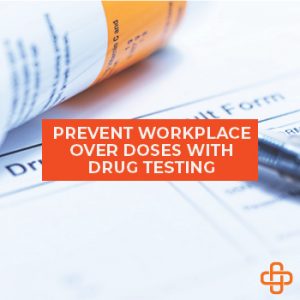 Drug abuse is an increasing problem across the U.S. From 1999 to 2017, the number of drug overdose deaths rose from 16,849 to 70,237. Drug overdoses occur in a variety of locations, and the workplace has not been immune to these incidents.
Drug abuse is an increasing problem across the U.S. From 1999 to 2017, the number of drug overdose deaths rose from 16,849 to 70,237. Drug overdoses occur in a variety of locations, and the workplace has not been immune to these incidents.
A recent NIOSH study examined the rate at which drug overdose deaths occurred in the workplace between 2011 and 2016 and compared fatality rates among different industries and demographics. The study, published in the Journal of Injury Prevention, found that during that six-year period, 760 drug overdose deaths occurred in U.S. workplaces.
So, one has to ask….what are my options?
Workplace Drug Testing
There are a variety of circumstances under which an organization may require testing. Such include:
Pre-Employment
“Pre” is the key term, applicants are required to pass drug testing as a condition of employment. Pre-employment testing is conducted to prevent hiring individuals who illegally use drugs. It typically takes place after a conditional offer of employment has been made.
Applicants agree to be tested as a condition of employment and are not hired if they fail to produce a negative test.
Reasonable Suspicion
Reasonable suspicion testing is similar to and sometimes referred to, as “probable cause” or “for cause” testing and is conducted when supervisors document observable signs and symptoms that lead them to suspect drug use or a drug-free workplace policy violation.
Random
Contrary to what many people believe, the goal of random drug testing isn’t to “catch” employees using drugs.
Random testing is performed on an unannounced, unpredictable basis on employees whose identifying information (e.g., social security number or employee number) has been placed in a testing pool from which a scientifically arbitrary selection is made. This selection is usually computer generated to ensure that it is indeed random and that each person of the workforce population has an equal chance of being selected for testing, regardless of whether that person was recently tested or not.
Because this type of testing has no advance notice, it serves as a deterrent.
Periodic
Periodic testing is usually scheduled in advance and uniformly administered. Some employers use it on an annual basis, especially if physicals are required for the job. Such tests generally are more accepted by employees than unannounced tests, but employees can prepare them by stopping their drug use several days beforehand.
Post-Accident
Since property damage or personal injury may result from accidents, testing following an accident can help determine whether drugs and/or alcohol were a factor. It is important to establish objective criteria that will trigger a post-accident test and how and by whom they will be determined and documented.
Examples of criteria used by employers include:
- Fatalities
- Injuries that require anyone to be removed from the scene for medical care
- Damage to vehicles or property above a specified monetary amount
- Citations issued by the police
Employers need to have guidelines to specify how soon following an accident testing must occur so results are relevant. Substances remain in a person’s system for various amounts of time, and it is usually recommended that post-accident testing be done within 8 hours for alcohol testing and 32 hours for drug testing.
Some employers expand the test trigger to incidents even if an accident or injury was averted and hence use the term “post-incident.”










